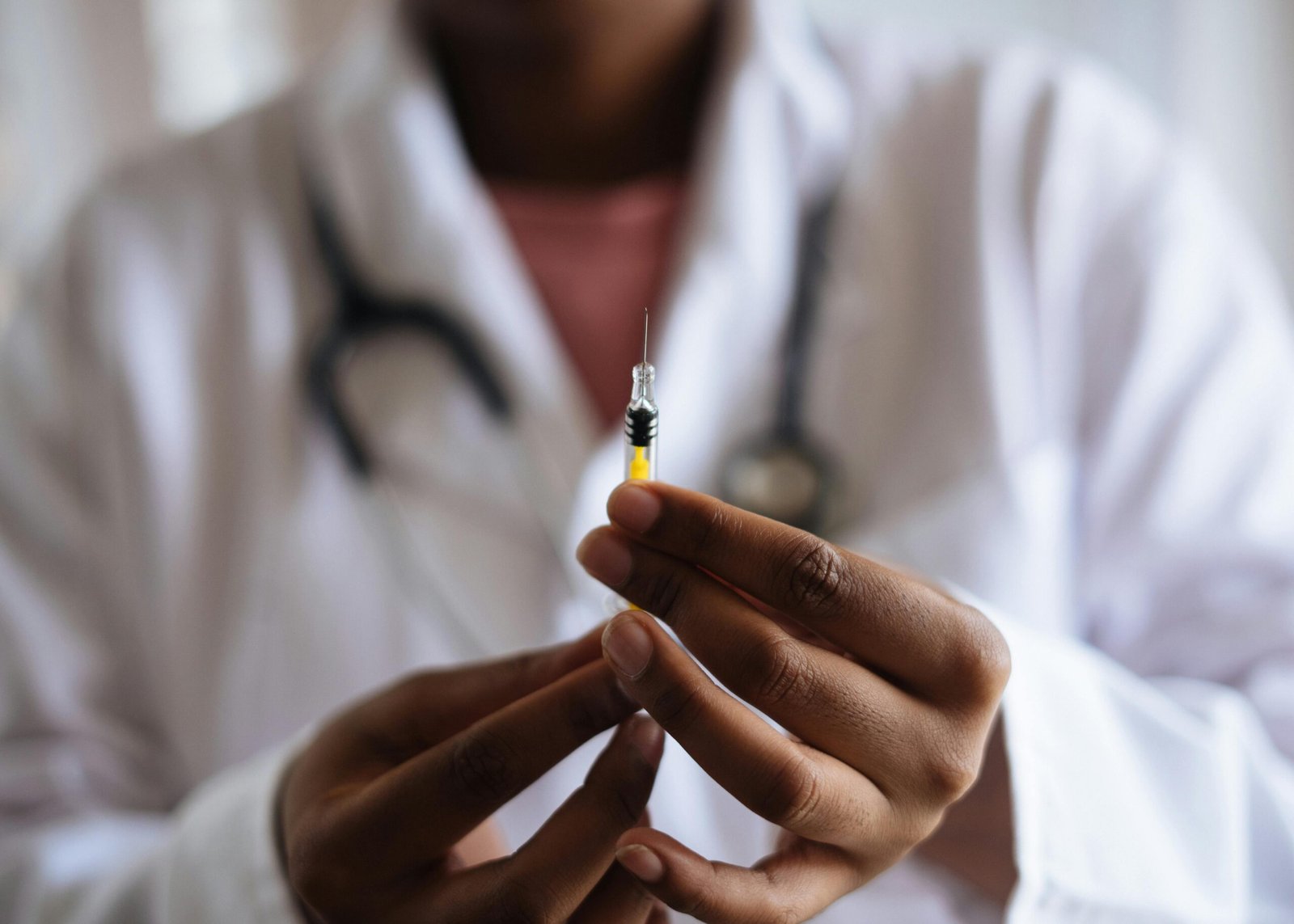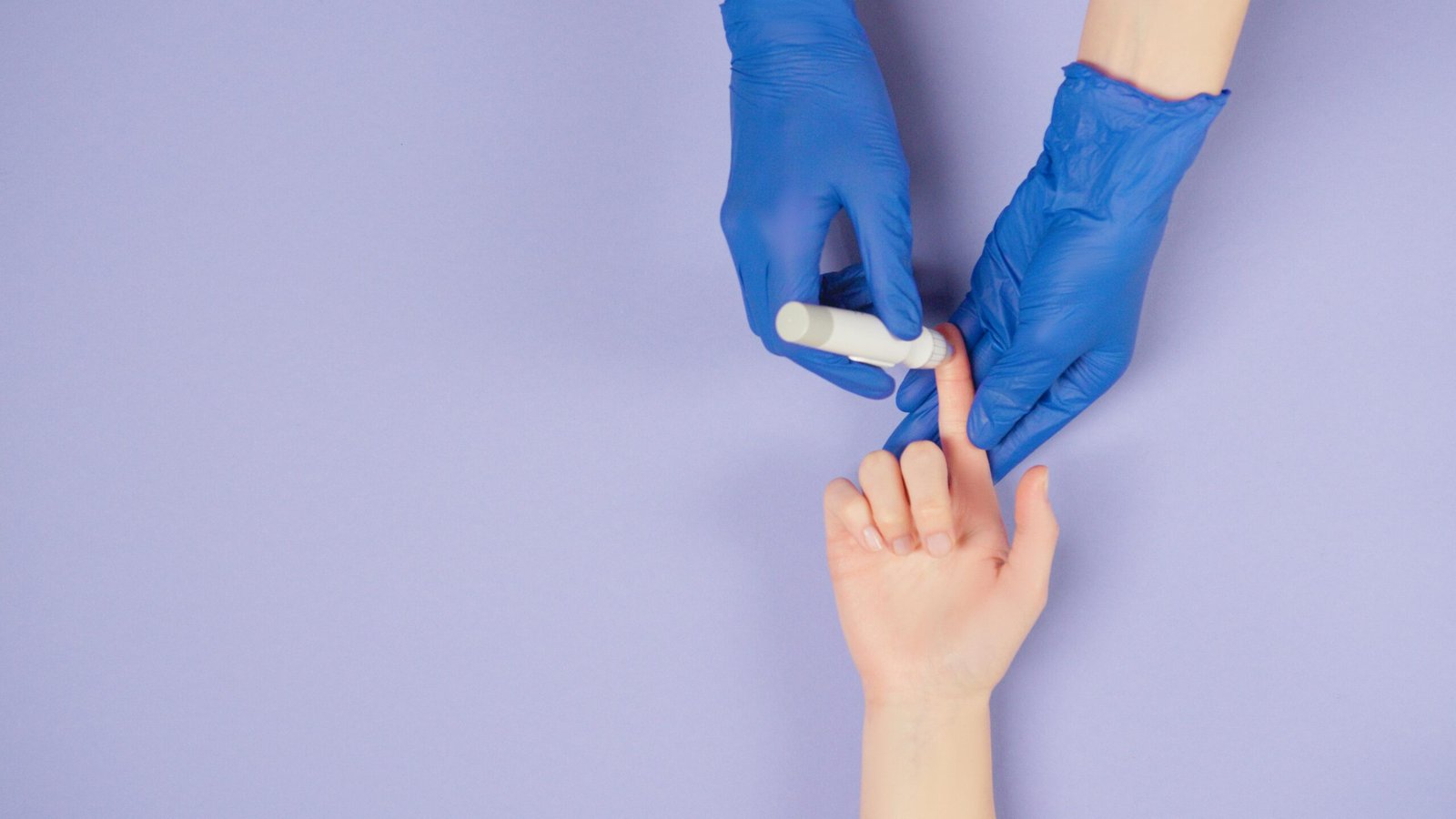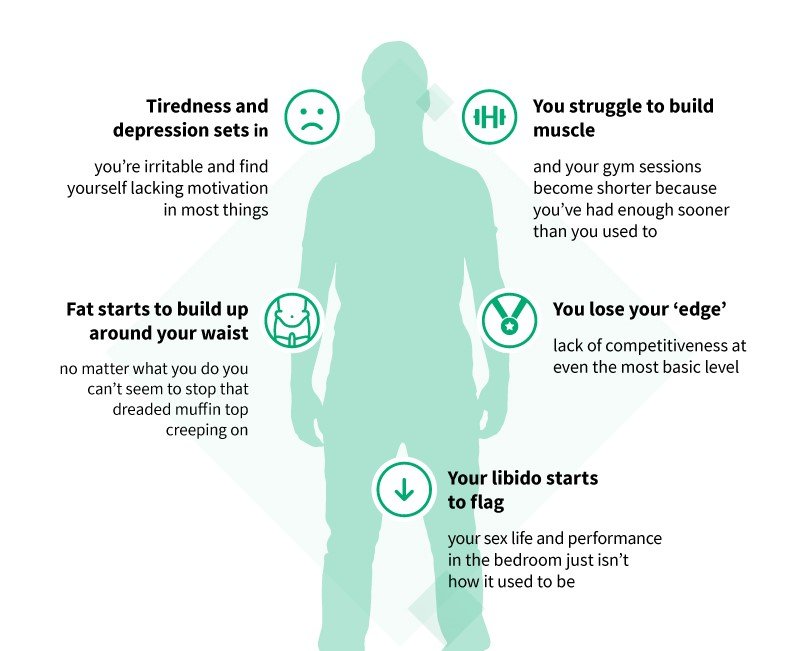Testosterone is the main “male” hormone and plays a significant role in the male health and well-being. It has an effect on numerous aspects of men’s physical and mental health, including muscle mass, bone density, mood, energy levels, and sexual function. Unfortunately, as men age, their testosterone levels begin to decline which in turn causes other health problems down the line.
The Symptoms of Low Testosterone Levels
Low testosterone levels can be spotted in a number of ways. Symptoms of low testosterone levels may be vary in different individuals but these are some common symptoms to look out for:
- Decreased Energy Levels: Although this can be as a result of other factors, a lack of energy and fatigue is often due to decreased testosterone.
- Mood Changes: Low testosterone levels often result in frequent mood swings and irritability. If you or your partner find that you are more cranky than usual then maybe your “T” is a little low.
- Loss of Muscle Mass: Losing muscle mass is a big sign that your testosterone is waning. Testosterone is essential for maintaining muscle mass. A loss of muscle or difficulty in building muscle could be an indication that you need to boost your testosterone.
- Increased Body Fat: Typically as a man ages and his years increase, so does is weight. The corresponding gain in weight and dip in testosterone levels are no accident. Testosterone is one of the main fat burners in men and helps to convert fat into muscle and energy.
- Decreased libido: As mentioned above, Testosterone is the main “male” hormone and is responsible for sexual health and function. Low testosterone levels can result in a loss of interest in sex, problems or difficulty achieving and maintaining erections, or erectile dysfunction.
- Decreased Bone Density: A longer-term issue associated with low testosterone is a decrease in bone density. Maintaining your testosterone levels can reduce the risk of osteoporosis and fractures at your later stages in life.
- Changes in Sleep Patterns: Low testosterone levels can disrupt sleep. You may find that you have problems falling asleep or that you wake up feeling tired.
Natural Remedies for Low Testosterone Levels
Should you suspect that your testosterone levels are below what they should be, the best method to confirm this is through a blood test performed by your medical professional. Your medical professional is also the best person to interpret the results which would be age related.
There are also a number of ways that you can naturally ensure that your “T” stays at optimum levels without resorting to medical solutions.
- Exercise Regularly: Good physical exercise, especially strength training and cardio, help to boost your testosterone. Aim for a combination of aerobic and resistance exercises for the best results.
- Maintain a Healthy Weight: Extra body fat reduces your testosterone levels. Increased exercise combined with a healthy diet without excess could help to boost your testosterone and keep your body in peak performance mode.
- Get Enough Sleep: Good sleep is essential for your body to regulate hormone function. Aim to get 7 to 9 hours of quality. Your body will thank you for it.
- Manage Stress: Yes, you guessed it, stress is the root of all evil in your body. I know that doctors tend to blame stress for everything that goes wrong but, in this case, they do so rightly. Stress can impact your hormone levels resulting in loss of interest in sex, increased appetite and other problems which all help to reduce your testosterone levels.
- Ensure Adequate Vitamin D Levels: Vitamin D plays a role in testosterone production. Spend time outdoors, get regular sunlight exposure, and consider taking a vitamin D supplement if necessary.
- Consume a Nutrient-Rich Diet: Include foods rich in essential nutrients, such as zinc, vitamin A, vitamin C, and healthy fats, in your diet. Your testosterone levels are not going to improve when your body is nutrient deficient.
- Limit Alcohol Consumption: Alcohol excess can reduce your testosterone levels and often, due to the sugar content, can increase your weight. Keep alcohol intake to a minimum in order to protect your testosterone.
- Consider using a supplement: Using a natural testosterone booster could help your testosterone levels to improve dramatically. A good natural testosterone booster has no side effects and is safe to use. Do Not Use Steroids unless prescribed and administered by a registered health official.
Observing the steps above should help to preserve and boos your testosterone levels but results can vary from individual to individual. If you are experiencing major problems, it is time to pay your doctor a visit.
Conclusion
Low testosterone levels can have a significant impact on a man’s overall health and well-being. Recognizing the symptoms and seeking appropriate guidance is crucial. By combining medical interventions with natural remedies like regular exercise, maintaining a healthy weight, and managing stress, it is possible to support healthy testosterone levels and improve overall quality of life.
Recognizing low testosterone and it’s consequences at an early stage could help to prevent a host of unpleasant consequences of low testosterone at a later, stage. Stay on top of the matter and make sure that you maintain your testosterone levels at peak levels.





